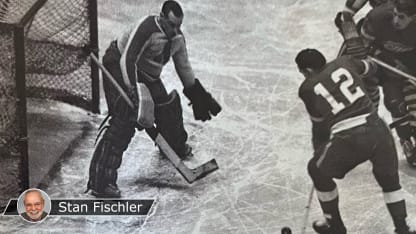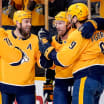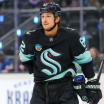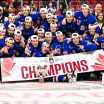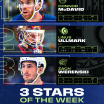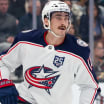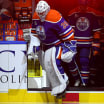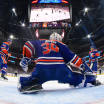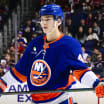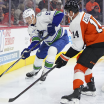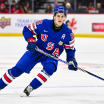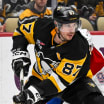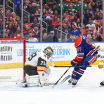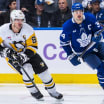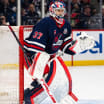You won't find Joe Miller and Earl Robertson enshrined in the Hockey Hall of Fame. But you will find their names engraved on the Stanley Cup.
And it's safe to say that only a few hockey historians remember that Miller and Robertson were emergency goalies who stepped in and helped their teams win the Cup.
A former Canadian Grey Cup football star, Miller helped the New York Rangers win the Stanley Cup in 1928. Robertson's unexpected heroics were delivered nine seasons later for the Detroit the Red Wings.
Miller's arrival at center stage happened by accident, or perhaps by two twists of fate.
Rangers goalie Lorne Chabot was seriously injured in Game 2 of the Stanley Cup Final against the Montreal Maroons. Since they were without a backup goalie at the time, Lester Patrick, the Rangers 44-year-old manager/coach, put on the pads and helped them win 2-1 in overtime to tie the best-of-5 series 1-1.
But Patrick was not going to test his luck again. Instead, he put in a call to Miller, who was back home in Ottawa after playing 28 games for the New York Americans in 1927-28.
Miller stepped in and played well in Game 3, but the Rangers lost 2-0.
Stanley Cup champions in 1926, the Maroons lineup was sprinkled with such future Hall of Famers as Nels "Old Poison" Stewart, "Red" Dutton and "Babe" Siebert. But Miller was not intimidated.
"We still thought we had a chance," Rangers center Frank Boucher said. "All we needed to stay alive in the series was get Joe a goal or two."
Boucher got one for the Rangers in Game 4 and that's all Miller needed in a 1-0 shutout victory that tied the series.
"A lot of people previously had poked fun at Joe," Boucher said. "He was nicknamed 'Red Light Miller' because a lot of goals were scored on him. But it was the Americans who were bad, not Joe."
Miller proved himself in Game 5, allowing one goal at Montreal Forum in a 2-1 victory that sealed the Cup championship for the Rangers.
Miller's play impressed the Pittsburgh Pirates, who signed him for the 1928-29 NHL season. He spent two years with them and one with the Philadelphia Quakers before retiring in 1931.
RELATED: [All-Time Stanley Cup Champions]
Robertson began the 1936-37 season in the minor leagues, his 10th without a sniff of playing in the NHL. That changed in the 1937 Stanley Cup Playoffs.
His opportunity came about when Red Wings goalie Normie Smith sustained an elbow injury in Game 1 of the Cup Final against the Rangers. Robertson was summoned to make his NHL debut on hockey's biggest stage.
"Earl withstood the pressure of a Cup series," wrote historian Ty Dillelo in The Hockey News. "But Detroit trailed 2-1 and was on the brink of elimination in the best-of-5 series. Robertson had to be flawless in Game 4, a 1-0 victory."
With the series tied 2-2, the Red Wings hosted Game 5 at Olympia Stadium. Like Miller before him, Robertson faced some of the top scorers in the NHL and stoned them all, including the Rangers Alex Shibicky, who was awarded a penalty shot and failed to score.
Robertson helped the Red Wings win the Stanley Cup with a 3-0 victory in Game 5. After the Cup presentation, the grinning backup told reporters, "They could take me out and shoot me now. I'd die happy."
The Red Wings traded him to the Americans and in 1937-38 he played his first regular-season NHL game, beginning a four-year run with New York. That included a trip to the 1938 Stanley Cup Final, when the Americans lost to the Chicago Black Hawks.
"Earl was one of the NHL's better goalies despite playing for a weak squad," wrote Dillello. "He was named a second team all-star in 1939 and twice finished in the top five in Hart Trophy voting."
And like Miller, it all began with a championship run to begin his NHL career.
